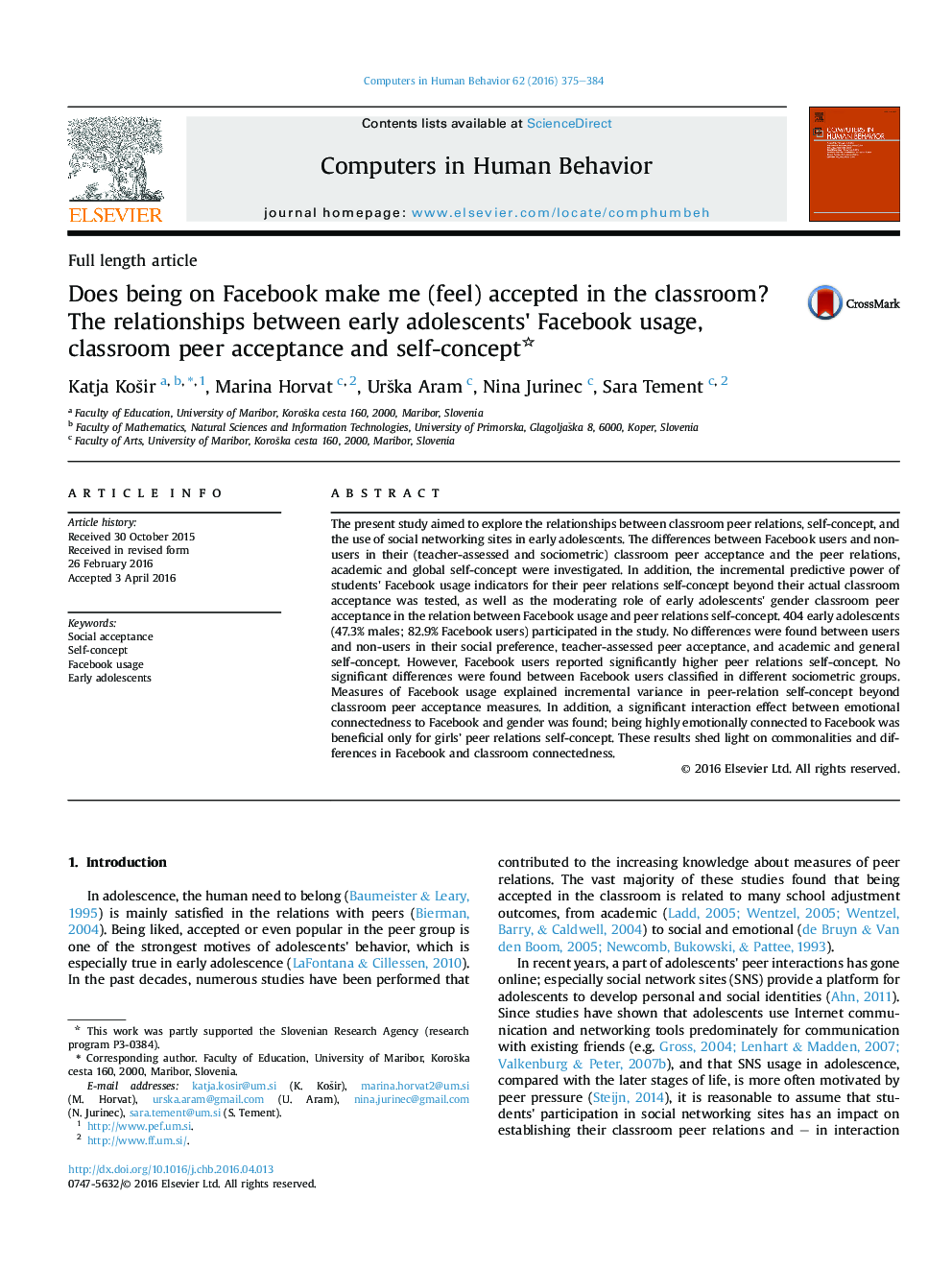| Article ID | Journal | Published Year | Pages | File Type |
|---|---|---|---|---|
| 6836861 | Computers in Human Behavior | 2016 | 10 Pages |
Abstract
The present study aimed to explore the relationships between classroom peer relations, self-concept, and the use of social networking sites in early adolescents. The differences between Facebook users and non-users in their (teacher-assessed and sociometric) classroom peer acceptance and the peer relations, academic and global self-concept were investigated. In addition, the incremental predictive power of students' Facebook usage indicators for their peer relations self-concept beyond their actual classroom acceptance was tested, as well as the moderating role of early adolescents' gender classroom peer acceptance in the relation between Facebook usage and peer relations self-concept. 404 early adolescents (47.3% males; 82.9% Facebook users) participated in the study. No differences were found between users and non-users in their social preference, teacher-assessed peer acceptance, and academic and general self-concept. However, Facebook users reported significantly higher peer relations self-concept. No significant differences were found between Facebook users classified in different sociometric groups. Measures of Facebook usage explained incremental variance in peer-relation self-concept beyond classroom peer acceptance measures. In addition, a significant interaction effect between emotional connectedness to Facebook and gender was found; being highly emotionally connected to Facebook was beneficial only for girls' peer relations self-concept. These results shed light on commonalities and differences in Facebook and classroom connectedness.
Related Topics
Physical Sciences and Engineering
Computer Science
Computer Science Applications
Authors
Katja Košir, Marina Horvat, Urška Aram, Nina Jurinec, Sara Tement,
